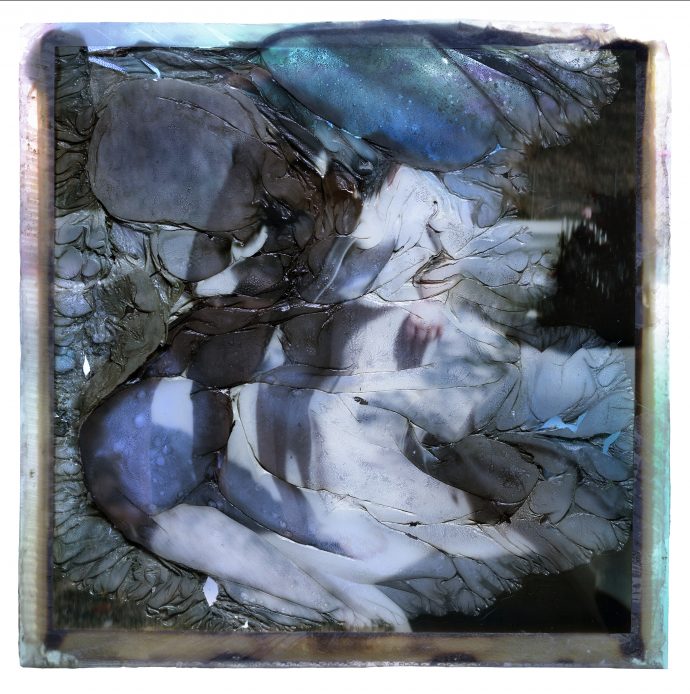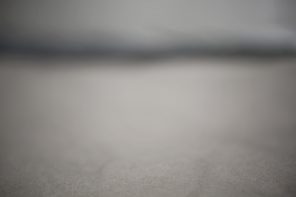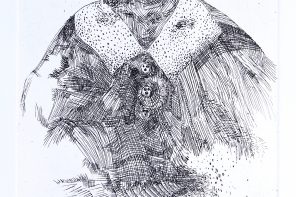She needs not to hear the name, the mother whose child has died on the ferryboat.
She isn’t looking at the sea, when the officers step on the pier and come forth—two small, forlorn figurines. No one else has disembarked still.
She has her back towards the sea, because she and her husband are hurrying towards the promenade, intending to get something to eat. Most unusually, the ferry hasn’t arrived on time. It has lingered in sight of the harbor for a while. No idea what the matter was—certainly a technical issue. In such case shouldn’t a repair craft be sent? A scooter has gone out at some point. Someone must have been hoisted aboard, some exchange must have happened . . . from shore they couldn’t tell. Finally, the boat has moved. It is nearing the docks, when they suddenly decide to go grab a bite.
In spite of their joyful expectancy they have grown tired. They have rented a car, bought what groceries could harmlessly sit in the trunk, parked the vehicle in a convenient place. As soon as the rest of the party lands, they’ll drive to their destination together. Keeping busy hasn’t been hard, but then exhaustion has kicked in. They haven’t eaten since morning. Hunger is making him irritable, she can tell. She feels weak, almost faint. Quickly, they head on foot towards the nearest shop—a question of minutes.
She hasn’t seen the men walking, but something makes her turn at once. As she notices them, her knees buckle and bend. She staggers, she stops.
Though he asked to remain with his aunt and cousins, though he was excited to stay and wait for the next ferry, she shouldn’t have let him. Now she is stabbed by the memory of when she climbed aboard, leaving both her children with her sister’s family. She waved. From the dock, they waved back. She watched them trotting away, adults chaperoning them. Whereto? Trust. She wasn’t in charge anymore.
She recalls the instant lightness—a sense of unburdening. Sweet relief, perversely savored. Now the feeling comes back and chokes her—burning fingers squeeze her neck in a deadly vise.
Earlier on, in the car, he complained he didn’t feel well. When she asked for detail, he said his head ached. Then his throat did. She knew he wasn’t capable yet of pinpointing the discomfort troubling him. She always took careful note of his claims, asking over and over, knowing how easily a child can forget. Meanwhile checking for clues (blush or pallor, a temperature, sweat, lack of appetite). Did she, this afternoon? Of course not—they were separated. But they shouldn’t have been.
Earlier on, in the car, he whined, “Mommy!” She turned toward the back seat. “I feel . . . ” “How?” “I don’t feel . . . ” His voice tapered down. “How, baby?” A cousin was poking his waist with her elbow. He started laughing. She had lost him. She hastily assumed he was fine—maybe a little carsick—a combined effect of excitement and tiredness.
Now a chasm splits her open, with the awareness those were early signs of whatever monster was threatening him. He sensed it and he duly informed her, asking help from the one supposed to provide it. She shouldn’t have left him.
He was wearing a checkered shirt—green, his favorite color. She imagines him in the boat—later, they will say he first fell in the dining room, close to the pool table where Uncle was waiting to play. He was eager to see Uncle play, eager and proud, perched on a tall stool—then dizziness must have tumbled on him like a cloud, sucked him like a maelstrom, vertiginous. God. Oh god. She shouldn’t have left him.
Before melting down with a twirling motion, as if wishing to screw herself into the wooden boards, un-removable, nailed to a square foot of dampness—a puddle, a patch of moss . . . Before being overwhelmed on her turn by darkness, she has time to visualize a strange object shining in the sunset. The sight bursts out of nowhere, while her mind and her eyesight fade. A vision, a visitation, a ghost.
She immediately recognizes the spiral binding of her son’s first-grade notebook, the one where she daily checks his homework. She has, for the past year. Now they are going on vacation. Here! The spiral flies closer. Her son likes to play with it, sticking his index finger between the curved metal and the side of the pad.
Just before she passes out she feels the tip of the spiral pierce her body—her eyes, ears, nostrils, breasts, chest, belly button, everything at once. The pain is unsustainable—yet liberating. An ecstasy of sorts.
Both officers lunge forward, grab her a bit clumsily, yet solidly. Her husband—who hasn’t noticed her stopping, who has kept going for a while—is running back madly, almost yanking her from the extraneous hands. His face questioning, yet already flooded with despair.
Rage takes hold of the little boy’s father before he is told anything. He knows without knowing, he knows but doesn’t know what.
He isn’t taken by guilt or regret, the dad of the boy who died on the ferryboat—for reasons we haven’t found yet but, when found, will reveal to be unreasonable. He doesn’t backtrack, crucified by the thought of what he should have done and didn’t. He hasn’t heard his boy muttering this or that from the backseat. Mom is the one listening.
He is devastated with rage—angry at the ocean, which has stolen something from him. Angry at the boat, that stolid ferocious whale, swallowing a most precious belonging.
Delicately, the three men have laid down the mother. She is stretched across the pier, rigid, frozen. Eyes wide open, she stares at the darkness above. Her mind has shut down. She is thinking of nothing. A strawberry-colored ache bleeds all over her. A drone rattles her ears. She is relinquishing everything, herself included.
The two officers have walked back to the ferry, now docked. People trickle out in small parties, moving awkwardly, either too fast or too prudently. Talking lowly, whispering as if in shame. The air is leaden, heavy, the saltiness sharp and incongruous, as is the lemon quarter of moon—paper lantern indecently probing the sky.
Toti O’Brien is the Italian accordionist with the Irish last name. She was born in Rome and then moved to Los Angeles, where she makes a living as a self-employed artist, performing musician, and professional dancer. Her work has most recently appeared in Independent Noise, Poeticdiversity, Soundings East, and Random Sample.




